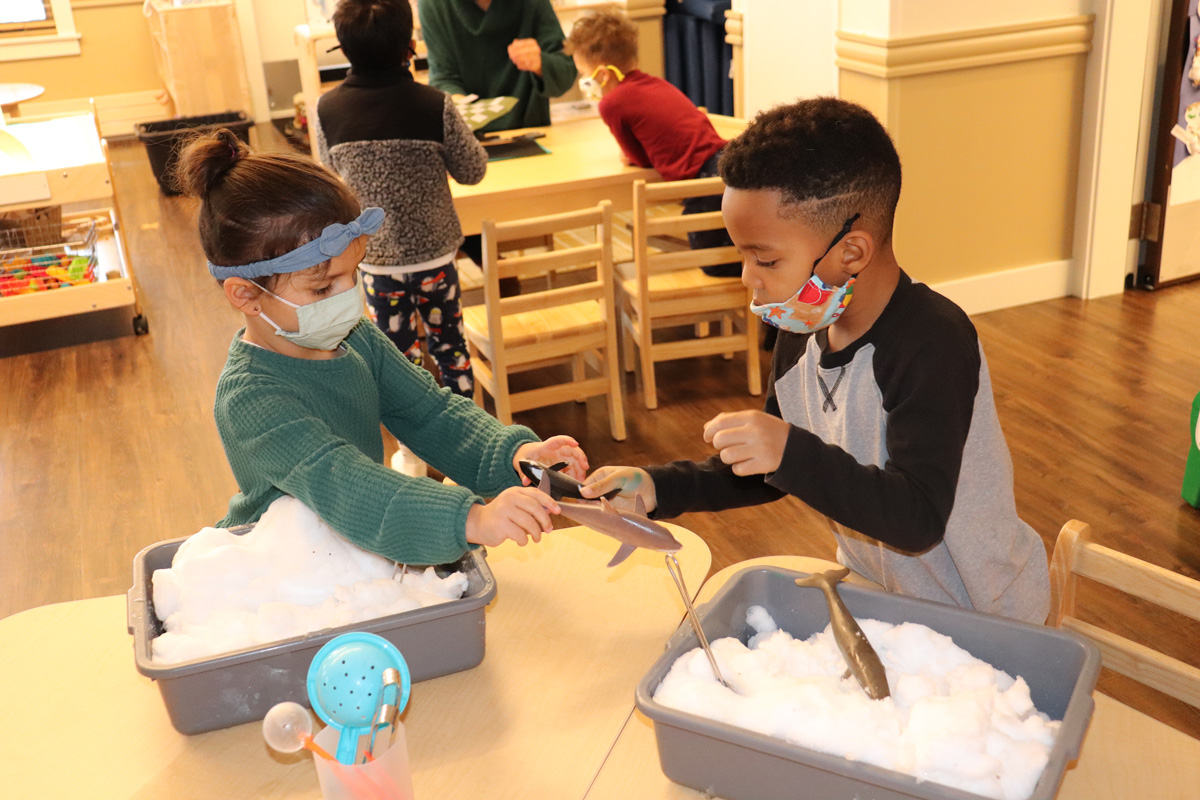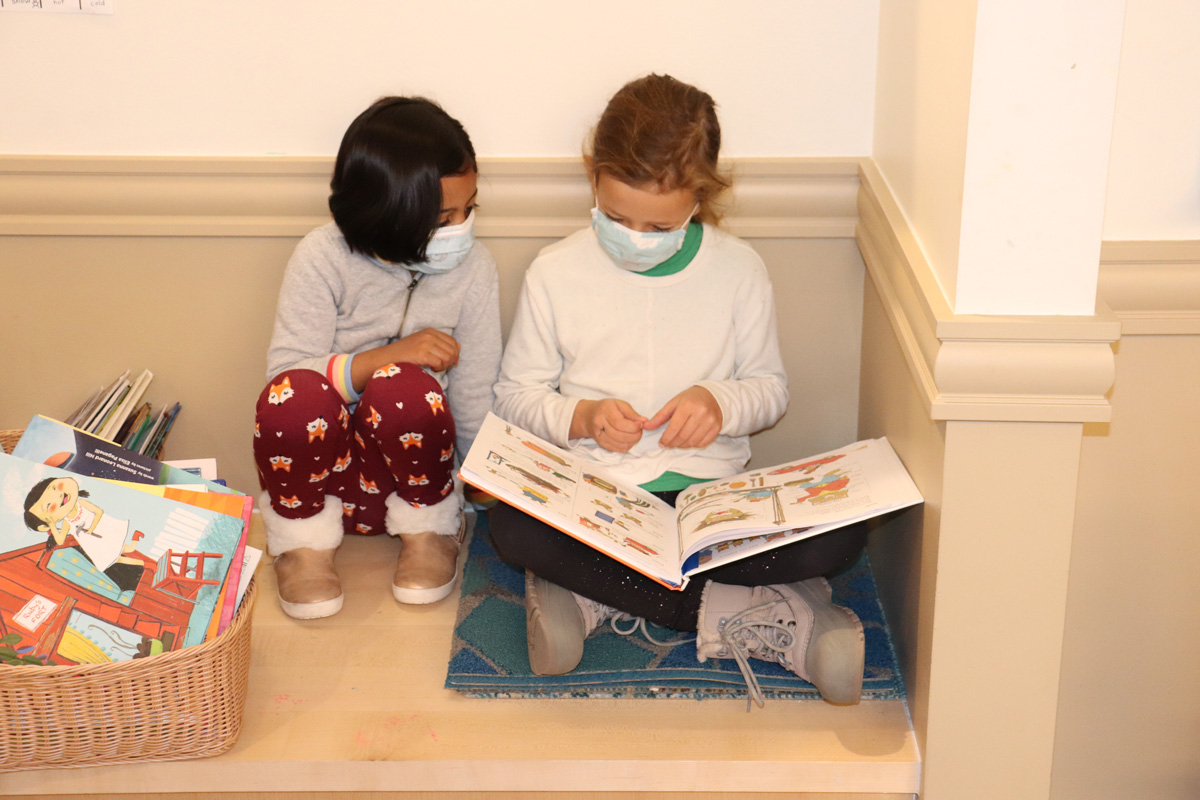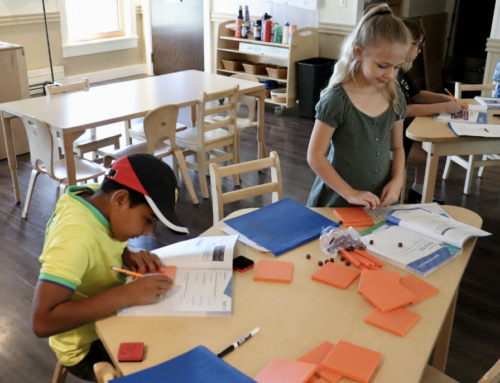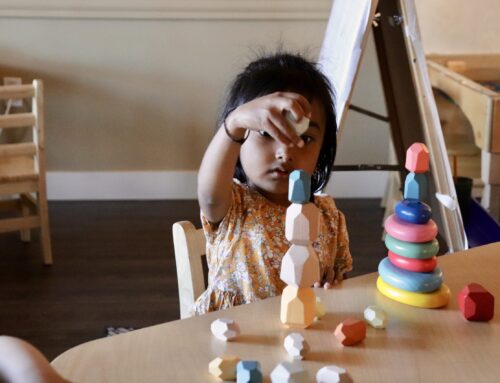
Hello everyone!
“You know, you have to be nice. When you’re not nice, I don’t want to play with you.”
These are words that one three-year-old at Compositive Primary said to his new best buddy, who was having a bad day and not being kind to his classmates. When I heard this, I thought, How wonderful to see him advocate for himself and his classmates so eloquently. That boy is clearly developing his EQ.
Typically, when parents look for schools for their kids, they ask a lot of questions about reading programs, math curricula, and standardized tests. But more and more, parents are recognizing that perhaps that focus is misguided. What good is being a math genius if you can’t get along with your colleagues? How helpful is it to have a high IQ if your EQ is lacking?
What Exactly is EQ?
The term EQ stands for Emotional Quotient (mirroring the term IQ, or intelligence quotient), but it is used interchangeably with the term emotional intelligence. Emotional intelligence is a fairly recent concept – the term was coined in 1990 by Peter Salovey and John D. Mayer, and it refers to the ability to understand one’s own feelings and those of others, and then to make decisions and perform actions that are guided by that understanding. The term caught on quickly, with Daniel Goleman, a science writer from the New York Times writing several books on the topic.
Why is EQ Important?
When you look at the top skills that employers seek, several of them involve EQ to some degree. The World Economic Forum published a list of top ten skills for 2025, and three of them involve self-management or working with people (active learning and learning strategies; leadership and social influence; and resilience, stress tolerance and flexibility). Additionally several of the more cognitive skills on the list (complex problem-solving; critical thinking and analysis; creativity, originality and initiative) require some level of emotional intelligence. And yet, schools still feel pressure to focus primarily on purely academic content and teach to standardized tests that emphasize only math and literacy.
When schools do take the time to address skills that help develop emotional intelligence, they are often viewed as “soft skills,” secondary to the allegedly more important content. And, these skills are often taught as a separate content area, perhaps in an advisory class or during set-aside SEL time. While doing this is still better than not addressing these skills at all, it can lead to students not taking the work seriously (and sometimes teachers not taking it seriously either!) and ignores the fact that there is a great deal of overlap between EQ and academic success.
How Do You Teach EQ?
At Compositive Primary, our inquiry-based curriculum integrates SEL seamlessly every day. Our model focuses on educating the whole child in the domains of cognition, character, health and well-being, and community engagement. We have created a set of essential understandings for each level in each domain, conveying the notion that each domain is as important as the others. Additionally, we seek to develop in our students four capacities: to reflect and learn; to recognize and act; to care and connect; and to engage and serve. Much of our documentation of student progress uses this language, and students work with teachers to set goals in all of these areas.
Teachers then develop long and deep inquiry arcs, taking their students on journeys that are unique each year because they truly listen to students to guide what they study. The content is a tool through which the students learn foundational skills in all areas. Because everything is interconnected, students develop social and emotional skills throughout the day in a way that does not seem contrived. And these ideas become ingrained into their thinking.
Let’s look back at those three-year-olds I spoke about earlier. The one boy was having a rough day and had not been kind to some classmates. His new friend stood up for himself in a kind and straightforward way. His friend’s words meant a lot to him, and, because of the groundwork his teachers had laid, he was able to see a cause and effect relationship between how you treat your classmates and whether friends want to play with you. He quickly shifted his perspective and behavior, and the boys continued to play. Both of them, without knowing it, were developing essential SEL skills and strengthening their EQ’s. How lucky I feel to witness moments like this every day.








